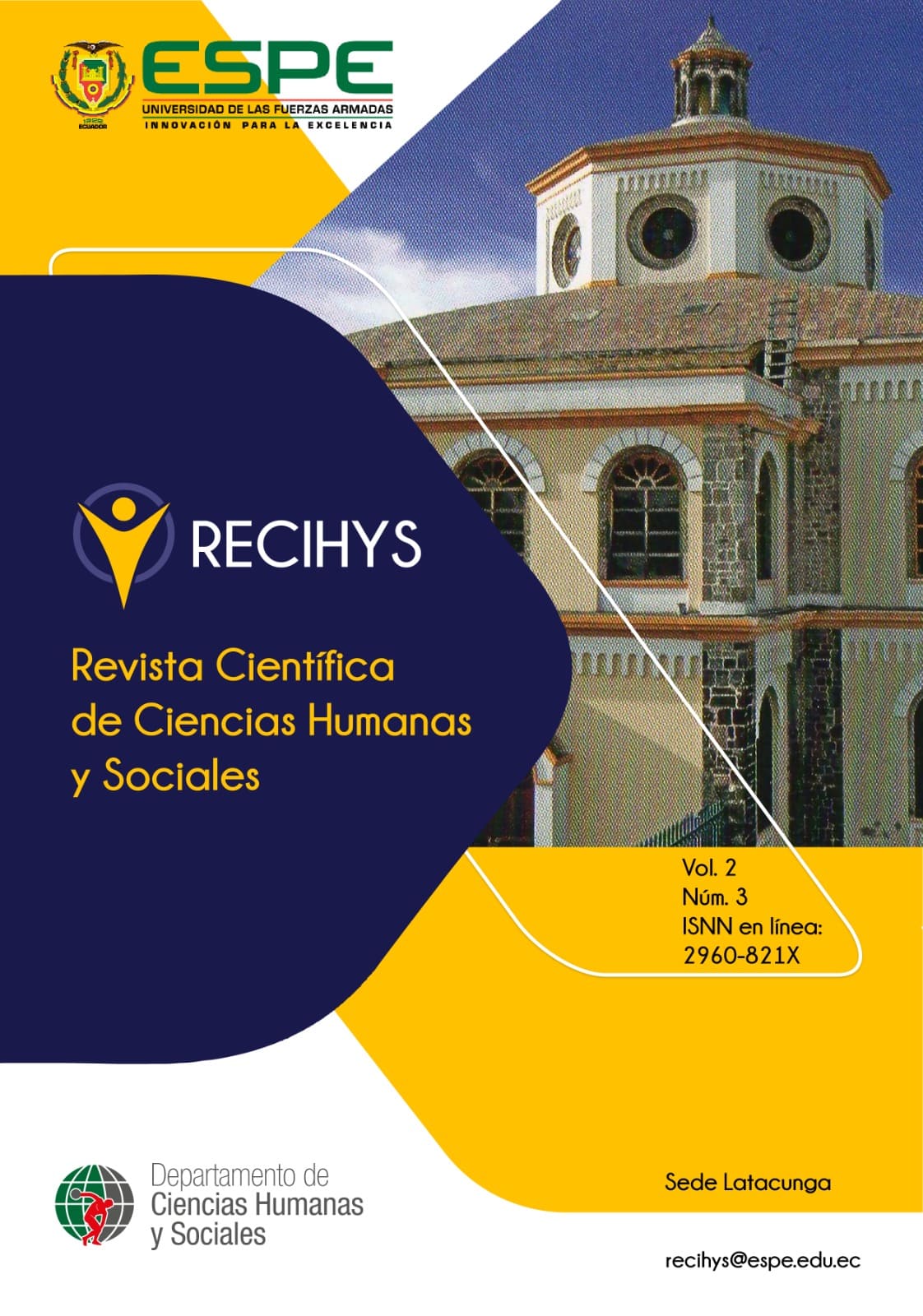Nutrition in female bodybuilders and its behavioral effects
Main Article Content
Abstract
One of the physiological needs of the human being is food and even more so when the person performs physical activity, nutrition being a fundamental aspect that affects physical sports performance. In the field of female bodybuilding, where physical appearance is paramount, female athletes face nutritional and behavioral challenges. The objective of this research was to analyze the association between dietary regimens and nutritional imbalances, hormonal alterations, and the presence of eating disorders and behavioral alterations in female athletes dedicated to bodybuilding. The research method was documentary, descriptive, exploratory with a qualitative approach. The findings showed that extreme calorie restrictions and nutritional imbalances were prevalent. This commonly led to mood swings, fatigue, food obsession, and eating disorders. After these extremes, however, many athletes experienced episodes of overeating and guilt. While nutritional deficits were necessary to achieve low body fat percentages, unhealthy dietary behaviors raised concerns about the athletes' long-term physical and mental well-being. The study highlighted the need for a more balanced and sustainable approach to nutrition for female bodybuilders, with greater emphasis on education and psychological support to encourage healthier eating habits and a positive body image.
Downloads
Article Details

This work is licensed under a Creative Commons Attribution-NonCommercial-NoDerivatives 4.0 International License.
Authors who publish in this journal agree to the following terms: Authors retain the copyright and guarantee the journal the right to be the first publication of the work, as well as, licensed under a Creative Commons Attribution License that allows others share the work with an acknowledgment of the authorship of the work and the initial publication in this journal. Authors may separately establish additional agreements for the non-exclusive distribution of the version of the work published in the journal (for example, placing it in an institutional repository or publishing it in a book), with acknowledgment of its initial publication in this journal. Authors are allowed and encouraged to disseminate their work electronically (for example, in institutional repositories or on their own website) before and during the submission process, as it may lead to productive exchanges as well as further citation earliest and oldest of published works.
How to Cite
References
Ajzen, I. (1991). The theory of planned behavior. Organizational Behavior and Human Decision Processes, 50(2), 179–211.
Alfonseca, J. A. (2006). Trastornos de la conducta alimentaria y deporte. Revista de Psicología del Deporte, 15(2), 245-259.
Bachl, N., & Matas, B. (2018). Archivos de Medicina del Deporte. 35(188), 90-95.
Castro López, R., Cachón Zagalaz, J., Molero López-Barajas, D., & Zagalaz Sánchez, M. L. (2013). Dismorfia muscular y su relación con síntomas de trastornos de la conducta alimentaria. Revista Mexicana de Trastornos Alimentarios, 4(1), 31–36.
Constitución de la República del Ecuador. (2008). Constitución de la República del Ecuador. https://www.asambleanacional.gob.ec/sites/default/files/documents/old/constitucion_de_bolsillo.pdf
Fernández-García, J. C., Pérez-López, F. R., & Chedraui, P. (2020). Impacto de la nutrición en el rendimiento deportivo. Revista Española de Nutrición Humana y Dietética, 24(1), 35-42.
Gómez Candela, C. (2017). Consenso sobre la evaluación y el tratamiento nutricional de los trastornos de la conducta alimentaria: Bulimia nerviosa, trastorno por atracón y otros. Nutrición Hospitalaria, 34(5), 1234-1245. https://doi.org/10.20960/nh.1562
González-Gross, M., Gutiérrez, A., Mesa, J. L., Ruiz-Ruiz, J., & Castillo, M. J. (2001). La nutrición en la práctica deportiva: Adaptación de la pirámide nutricional a las características de la dieta del deportista. Archivos Latinoamericanos de Nutrición, 51(4), 321–331.
Helms, E. R., Aragon, A. A., & Fitschen, P. J. (2014). Evidence-based recommendations for natural bodybuilding contest preparation: Nutrition and supplementation. Journal of the International Society of Sports Nutrition, 11(1), 20-30.
Hernández Sampieri, R., & Fernández-Collado, C. F. (2014). Metodología de la investigación (P. Baptista Lucio, Ed.; 6ta ed.). McGraw-Hill Education.
Latham, M. C. (2002). Nutrición humana en el mundo en desarrollo. FAO.
Lavín, A. R. P. (2015). El pacto internacional de derechos económicos, sociales y culturales. Comisión Nacional de los Derechos Humanos.
Lecanda, R. Q., & Garrido, C. C. (s/f). Introducción a la metodología de investigación cualitativa. Editorial Académica Española.
Martinez-Rodriguez, A. (2015). Efectos de la dieta y práctica de deportes aeróbicos o anaeróbicos. Nutrición Hospitalaria, 31(3), 1240–1245. https://doi.org/10.3305/nh.2015.31.3.8131
Martínez-Rodríguez, R., & Baladia, E. (2019). Modificar el estilo de vida para mejorar la salud de los escolares: ¿qué aporta la Revista Española de Nutrición Humana y Dietética en este campo? Revista Española de Nutrición Humana y Dietética, 23(1), 1–3.
Martínez-Salgado, C. (2012). El muestreo en investigación cualitativa: Principios básicos y algunas controversias. Ciência & Saúde Coletiva, 17(3), 613–619. https://doi.org/10.1590/S1413-81232012000300006
McDermott, M. S., Oliver, M., Svenson, A., Simnadis, T., Beck, E. J., Coltman, T., Iverson, D., Caputi, P., & Sharma, R. (2015). The theory of planned behaviour and discrete food choices: A systematic review and meta-analysis. International Journal of Behavioral Nutrition and Physical Activity, 12, 1–11.
Peris-Delcampo, D., Roffé, M., Jodra, P., & Ucha, F. G. (2023). Salud mental y psicología del deporte: Fundamentos prácticos. Imaginante editorial.
Rodríguez, A. S. (2019). Fisicoculturismo. Orígenes antropológicos y connotaciones filosóficas. Midac, SL.
Sánchez-Oliver, A. J. (2018). Nutrición y suplementación en el deporte. Editorial Médica Panamericana.
Uceda, B. I., & Cecilia, S. (2023). Estrés laboral y depresión en personal asistencial de un hospital de Chota en tiempos COVID-19. Revista de Salud Pública, 202(1), 45-52.
Universidad Estatal de Bolívar, & Acosta, M. (2020). La nutrición, suplementación e hidratación en el ámbito deportivo como base en el físico culturismo. Revista de Investigación Talentos, 7(1), 31–47. https://doi.org/10.33789/talentos.7.1.121
Whitney, E. N., Rolfes, S. R., Crowe, T., & Walsh, A. (2019). Understanding nutrition. Cengage AU.
Zotero. (2024). Zotero [Software]. https://www.zotero.org/

